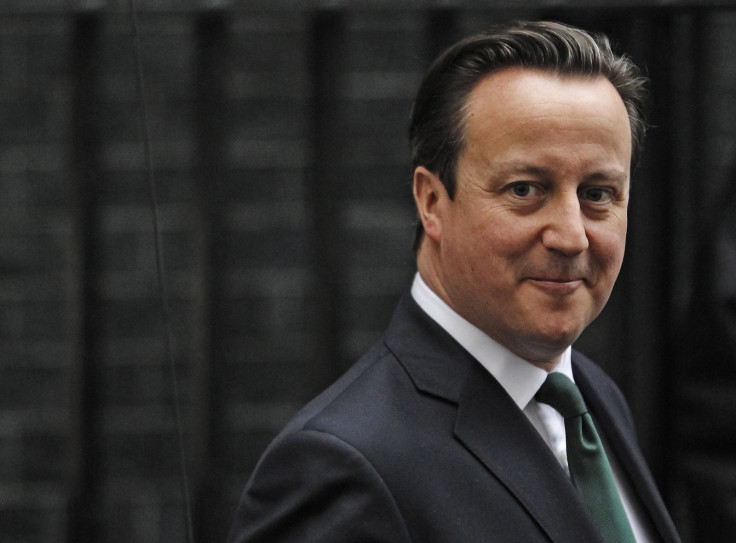UK Inflation Fall: Have the Summer Sales Got David Cameron and Mark Carney Off the Hook?

All the best things come in threes. Greek philosopher Pythagoras even had a love affair with the number, dubbing it the "beginning, middle and end".
But, as we all know, there is always an exception to a rule. In this case, a political slogan.
The government's 'Long-Term Economic Plan' is a triplet ministers relentlessly deploy.
On Twitter, a corner of cyberspace packed with fun and fury, the riff is shamelessly shoehorned into MPs' tweets.
When the prime minister meets the people, for instance, he makes sure to mark the occasion with a cheeky #LongTermEconomicPlan shout out.
Great to meet apprentices working on the new Airbus A350 - a tribute to UK aerospace industry. #LongTermEconomicPlan pic.twitter.com/Gka3RBfXrj
— David Cameron (@David_Cameron) July 14, 2014But the hashtag – because of its ridiculous length – has quickly drawn ridicule from the Twitterati.
However, that hasn't stopped overeager Tories using it when they're promoted.
I'm very pleased the Prime Minister @Number10gov has asked me to become an assistant Whip #reshuffle #LongTermEconomicPlan
— Therese Coffey (@theresecoffey) July 15, 2014And after the Office for National Statistics announced that Consumer Price Index inflation had fallen to 1.6% in July, down from 1.9% in June, Cameron was at it again.
He welcomed the news and linked the fall to – yep, you guessed it – the #LongTermEconomicPlan.
But it seemed the Conservative Party leader was a little trigger happy when it came to the inflation drop.
After all, the Bank of England clearly states inflation below the target of 2% – which was set by Chancellor George Osborne in his 2014 Budget – is "judged to be just as bad as inflation above the target".
Cameron's tweet therefore begs the question: is the #LongTermEconomicPlan designed to create economic instability?
Of course not, but that acknowledgement gives way to another suggestion: is the prime minister welcoming the CPI inflation fall because of the country's poor real wage growth?
This seems the most likely explanation. For example, average wages grew by just 0.6% in the three months to June, according to the ONS.
This is well behind the most recent CPI inflation rate and gives political ground to Labour leader Ed Miliband, who has adopted a "cost of living crisis" campaign.
However, the CPI fall – thanks in part to this year's summer sales – enables Cameron to head Miliband off at the pass.
"The cost of goods is falling," the prime minister can boast, "the #LongTermEconomicPlan is working – there is no cost of living crisis."
The drop has also given Mark Carney, the governor of the Bank of England, breathing room.
The Canadian economist and the other members of the central bank's Monetary Policy Committee have been under increasing pressure to raise the historically low interest rates of 0.5%.
But as Laith Khalaf, a senior analyst at Hargreaves Lansdown, put it: "CPI inflation continues to look contained and at current levels is unlikely to put pressure on Carney to become a 'reliable boyfriend' when it comes to interest-rate policy.
"As long as inflation remains benign, the central bank will also have leeway to raise interest rates slowly and gradually, when they decide the time has come to do so."
So, the summer sales have been bad news for savers but good news for Cameron and Carney.
© Copyright IBTimes 2024. All rights reserved.






